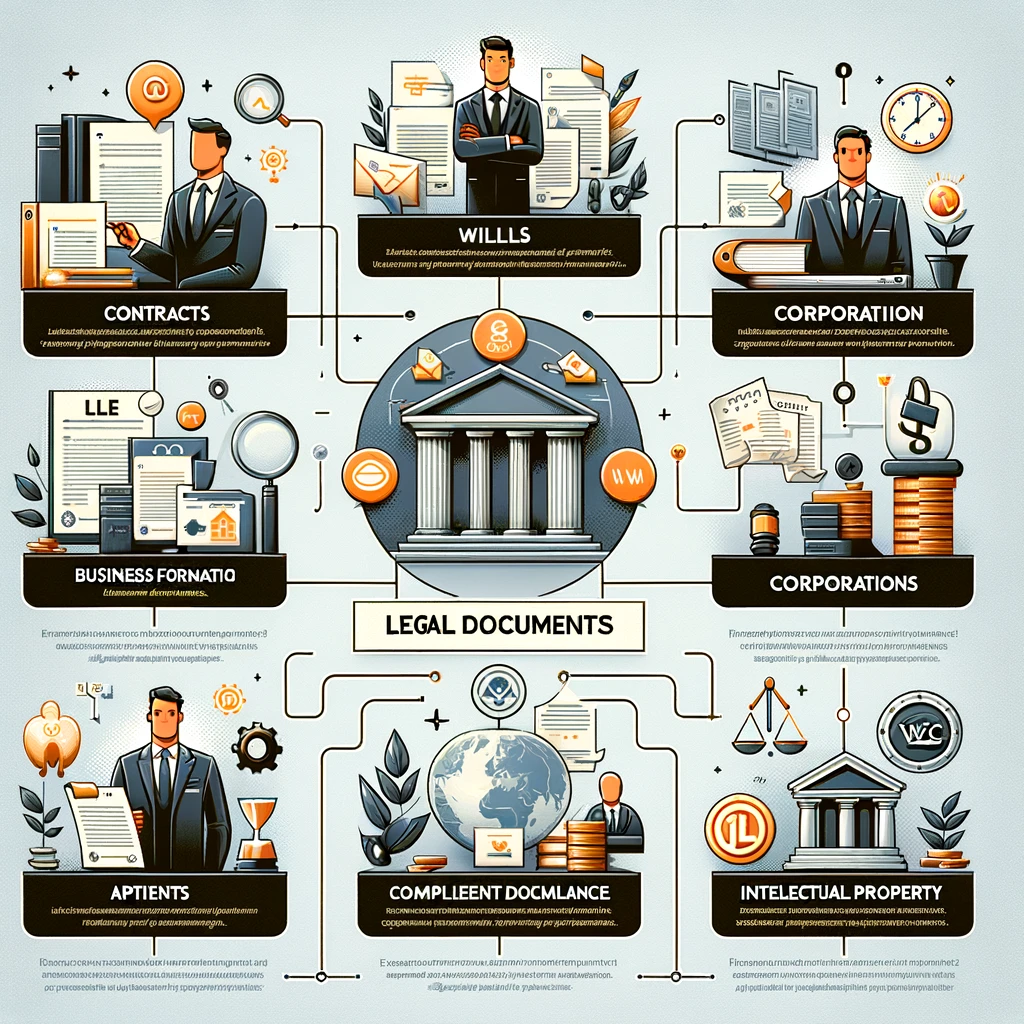The Essential Guide to Understanding Types of Legal Documents
Understanding the vast landscape of legal documents is crucial for businesses, legal professionals, and individuals navigating the complexities of the legal world. This comprehensive guide delves into the various types of legal documents, offering insights into their purposes, intricacies, and how they play a pivotal role in safeguarding rights and outlining obligations.

Introduction to Legal Documents
Legal documents are written records that are officially recognized by court systems or governments. They can represent agreements, convey legal rights, or set forth obligations. From contracts to wills, the spectrum of legal documents is broad, each serving a specific function in personal and business realms.
The Importance of Legal Documents
Legal documents form the backbone of most transactions, relationships, and proceedings in the legal domain. They provide clarity, prevent misunderstandings, and are often mandatory for various processes. Understanding their nuances can help in making informed decisions and ensuring compliance with the law.
Main Types of Legal Documents
Contracts
Contracts are agreements between two or more parties that are enforceable by law. They detail the rights and duties of the involved parties. Common types include employment contracts, sales agreements, and lease agreements.
Employment Contracts: Outline the terms of employment, including duties, compensation, and termination conditions. For more information, the U.S. Department of Labor provides guidelines on employment agreements.
Lease Agreements: Govern the rental of property, specifying terms like rent, duration, and maintenance obligations. The U.S. General Services Administration offers resources on federal real property leasing.
Wills and Estate Planning Documents
Wills and estate planning documents ensure a person's wishes are followed in distributing their assets after death. Trusts, powers of attorney, and advanced healthcare directives are integral to comprehensive estate planning.
Wills: Legal declarations by which individuals specify how their property is to be distributed upon death.
Trusts: Created to manage assets for beneficiaries, potentially offering tax benefits and avoiding probate. The Internal Revenue Service (IRS) provides information on the tax implications of trusts.
Business Formation Documents
Business formation documents are required to legally establish a business entity. Articles of Incorporation for corporations and Articles of Organization for Limited Liability Companies (LLCs) are examples.
Articles of Incorporation: Filed with a state government to legally form a corporation. The U.S. Small Business Administration (SBA) offers guidance on starting a business.
Operating Agreements: Detail the operations of an LLC, outlining the rights and responsibilities of its members.
Legal Compliance Documents
These documents ensure businesses and individuals adhere to laws and regulations. They include permits, licenses, and regulatory filings.
Permits and Licenses: Required for certain business activities, varying by industry and location. The SBA provides a tool for identifying necessary permits and licenses.
Regulatory Filings: Documents submitted to governmental agencies to comply with regulations, such as SEC filings for publicly traded companies.

Create & Review Your Contracts 10x Quality and Ease
Lawyer-level AI handles all your contract needs, with real lawyers providing safeguarding support

Intellectual Property Documents
Intellectual property documents protect creations of the mind, such as inventions, literary works, and trademarks.
Patents: Grant inventors exclusive rights to their inventions. The United States Patent and Trademark Office (USPTO) is a valuable resource for patent information.
Trademarks: Protect symbols, names, and slogans used to identify goods or services. The USPTO also offers trademark registration and search services.
Navigating Legal Document Preparation and Use
Legal document preparation varies in complexity. Some documents, like simple contracts, can be drafted using templates or software. However, more complex documents, such as wills or patents, often require legal expertise. Consulting with a lawyer ensures that documents are legally sound and tailored to specific needs.
Digital Legal Services
The rise of digital legal services has made accessing legal assistance and document preparation easier and more affordable. Platforms like LegalNow AI offer AI-powered tools for drafting, reviewing, and managing legal documents, democratizing access to legal services.
Conclusion
Legal documents are fundamental in defining relationships, rights, and obligations in both personal and professional contexts. Understanding the types of legal documents and their purposes empowers individuals and businesses to navigate the legal landscape effectively. As technology evolves, digital legal services are becoming an invaluable resource for managing legal needs efficiently.
For further exploration of legal documents and guidance, visit authoritative sources like the American Bar Association or educational resources like Harvard Law School's Library.

